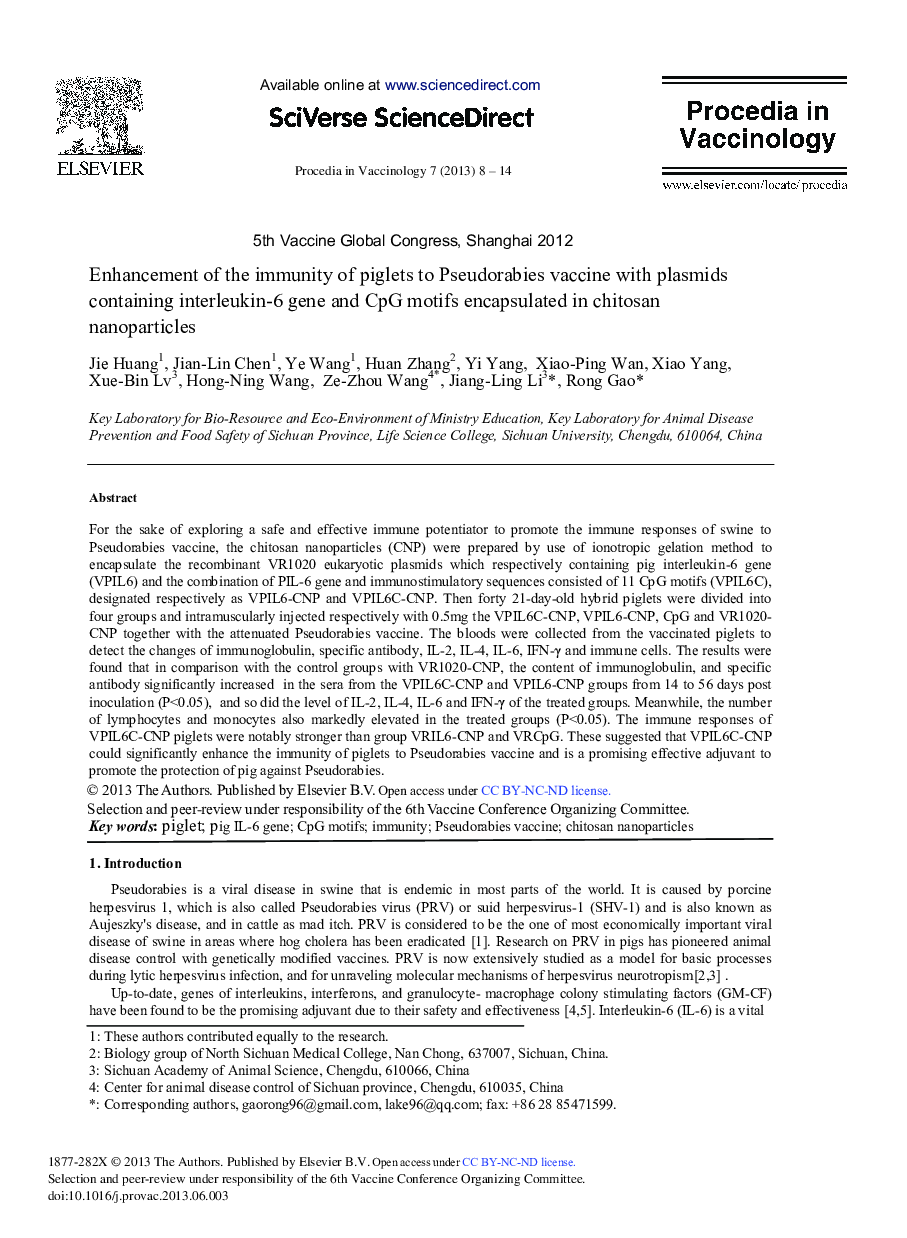| Article ID | Journal | Published Year | Pages | File Type |
|---|---|---|---|---|
| 2473832 | Procedia in Vaccinology | 2013 | 7 Pages |
For the sake of exploring a safe and effective immune potentiator to promote the immune responses of swine to Pseudorabies vaccine, the chitosan nanoparticles (CNP) were prepared by use of ionotropic gelation method to encapsulate the recombinant VR1020 eukaryotic plasmids which respectively containing pig interleukin-6 gene (VPIL6) and the combination of PIL-6 gene and immunostimulatory sequences consisted of 11 CpG motifs (VPIL6C), designated respectively as VPIL6-CNP and VPIL6C-CNP. Then forty 21-day-old hybrid piglets were divided into four groups and intramuscularly injected respectively with 0.5 mg the VPIL6C-CNP, VPIL6-CNP, CpG and VR1020- CNP together with the attenuated Pseudorabies vaccine. The bloods were collected from the vaccinated piglets to detect the changes of immunoglobulin, specific antibody, IL-2, IL-4, IL-6, IFN-γ and immune cells. The results were found that in comparison with the control groups with VR1020-CNP, the content of immunoglobulin, and specific antibody significantly increased in the sera from the VPIL6C-CNP and VPIL6-CNP groups from 14 to 56 days post inoculation (P<0.05), and so did the level of IL-2, IL-4, IL-6 and IFN-γ of the treated groups. Meanwhile, the number of lymphocytes and monocytes also markedly elevated in the treated groups (P<0.05). The immune responses of VPIL6C-CNP piglets were notably stronger than group VRIL6-CNP and VRCpG. These suggested that VPIL6C-CNP could significantly enhance the immunity of piglets to Pseudorabies vaccine and is a promising effective adjuvant to promote the protection of pig against Pseudorabies.
